Frequently Asked Questions
How long does a dilated appointment normally take?
1 ½ to 2 hours.
Do I need a driver if I have my eye dilated?
Yes, we recommend you have a driver with you if you have your eyes dilated.
Where can I fill out the patient registration forms before my appointment?
You can find all of the necessary forms on our website! Just download them, print and fill them out before your appointment. If you have any questions about where to find them on our website, please give us a call.
Do you accept medicaid or medicare insurance?
Yes
What is a refraction?
A refraction is a test to determine the lens prescription you will need for glasses or contacts.
What do I need to bring to my eye appointment?
Photo ID, Insurance cards, medication lists, and glasses or contacts if you currently wear.
What is the comprehensive eye exam process at Frank Eye Center in Ottawa KS?
Our comprehensive eye exams include vision testing, glaucoma screening, and retinal evaluation—perfect for adults, children, and those with underlying eye conditions.
Does Frank Eye Center offer cataract surgery in Ottawa Kansas?
Yes—Dr. Frank performs outpatient cataract surgery using advanced technology like the Verion Image Guide System and premium lens implants.
Can I get glaucoma treatment and monitoring services near me at Frank Eye Center?
Absolutely—our team offers glaucoma screenings, medication plans, laser trabeculoplasty, and minimally invasive glaucoma surgery (MIGS).
What specialized pediatric ophthalmology services in Ottawa KS do you provide?
We diagnose and treat amblyopia (lazy eye), strabismus, congenital eye conditions, cataracts, ptosis, nystagmus, and tear-duct obstructions.
Where does Dr. Frank perform laser eye surgery near Ottawa Kansas?
Dr. Frank offers laser surgery solutions—for retinal tears, diabetic retinopathy, glaucoma, and post-cataract procedures—at Frank Eye Center.
How do I schedule a routine eye exam for children and adults in Ottawa KS?
Call our office at 785‑242‑4242 to schedule routine eye exams; we serve all ages with state-of-the-art diagnostic tools.
What optical services and eyeglass fittings does Frank Eye Center offer onsite?
Our in-house optical lab offers eyeglasses, custom contact lens fittings, adjustments, and repairs for maximum convenience .
How does Frank Eye Center treat macular degeneration in Kansas?
We provide early detection through dilated exams and tailor treatment plans—ranging from monitoring to laser therapies—for both dry and wet macular degeneration, and have retinol specialists in house for treatments typically weekly.
Are eyelid cosmetic and reconstructive surgeries available at Frank Eye Center?
Yes—Dr. Frank offers blepharoplasty and eyelid plastic surgery to correct ptosis, droopy eyelids, and removal of benign and malignant lesions with reconstruction, improving vision and appearance, and health, often through oculoplastic specialists in house.
What payment options are accepted at Frank Eye Center Ottawa KS?
We accept cash, check, Visa, MasterCard, Discover, Medicare, and most insurance plans—co-pays and non-covered services are due at time of service .
What should I consider when choosing an eye surgeon near Ottawa, Kansas?
When selecting an eye surgeon, consider board certification, years of surgical experience, access to hospital privileges, and specialization in procedures like cataract or glaucoma surgery. It’s also important to ask about the technology they use and whether they offer customized treatment plans based on your specific condition.
What types of pediatric eye conditions are commonly treated in Northeast Kansas?
Common pediatric eye conditions include amblyopia (lazy eye), strabismus (crossed eyes), ptosis (drooping eyelids), congenital cataracts, and tear duct obstructions. Early diagnosis and treatment—often beginning with a comprehensive eye exam—are critical for supporting healthy vision development in children.
Why are diabetic eye exams important, and how often should they be done?
Diabetic eye exams are essential for detecting early signs of diabetic retinopathy, a condition that can cause vision loss if left untreated. The American Diabetes Association recommends a comprehensive dilated eye exam once a year for individuals with diabetes, even if there are no noticeable symptoms.
What are the latest treatment options for cataracts in Kansas?
Modern cataract treatment typically involves outpatient surgery using ultrasound technology (phacoemulsification) to remove the cloudy lens, followed by implantation of an artificial intraocular lens (IOL). Today’s options include standard monofocal lenses as well as premium multifocal or toric lenses for astigmatism correction.
What causes droopy eyelids, and when is surgery considered medically necessary?
Droopy eyelids (ptosis or dermatochalasis) can be caused by age-related muscle weakening, trauma, nerve damage, or congenital factors. If droopy eyes interfere with vision—such as limiting the upper field of view—insurance may consider blepharoplasty or ptosis repair (eyelid surgery) a medically necessary procedure.
Are eye floaters and flashes a cause for concern?
While occasional floaters and flashes can be normal with aging, a sudden increase—especially if accompanied by shadowed vision or light streaks—may indicate a retinal tear or detachment. Timely evaluation by an eye care specialist is recommended in these cases to prevent vision loss.
